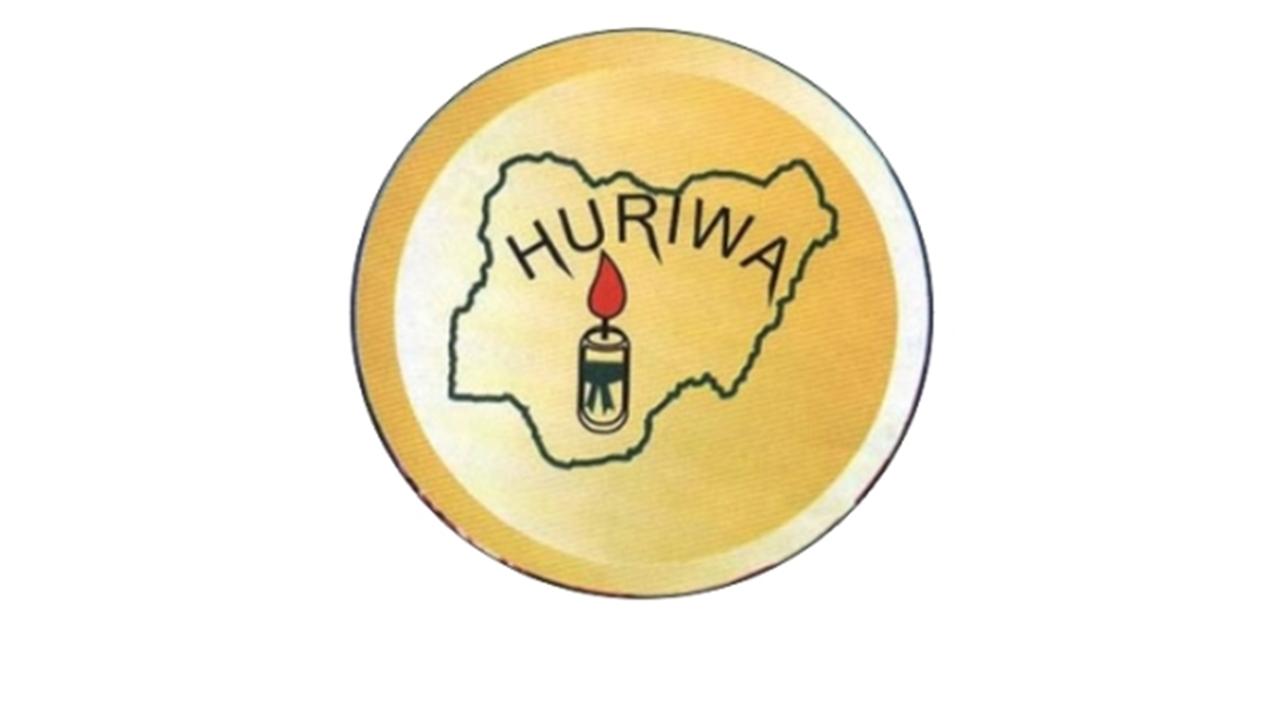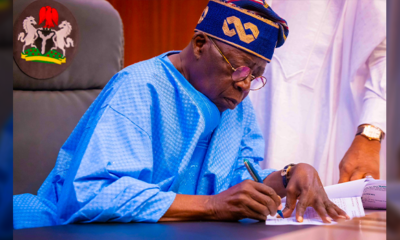Latest News
Why plots to regulate social media will kill off free speech – HURIWA warns FG

The foremost civil Rights advocacy group – HUMAN RIGHTS WRITERS ASSOCIATION OF NIGERIA (HURIWA) has warned the federal government to desist from its sinister plots to undermine freedom of speech under the guise of attempting to regulate social media.
HURIWA has for the umpteenth time called for the immediate release of the publisher of Saharareporters and the political activist Mr. Omoyele SOWORE and his supporters currently being detained and persecuted only for attempting to ventilate their righteous indignation over the bad state of governance of Nigeria. HURIWA said the continuous detention of these journalists and activists and their illegal persecution since three months now paints Nigeria graphically as a banana republic and a laughing stock of the World. “It is shameful that the government can lock up activists and journalists only for expressing dissenting views and the President still globetrots in the name of a civilian President of a constitutional democracy. This is a joke taken too far. These Nigerians should be freed and allowed to freely express their opinions within the bounds of the law as provided for under the relevant provisions that protect Free Speech. Now the media practitioners and activists face deadly threats from the Central government and their intolerant and primitive supporters.”
In the thinking of the human rights body, the series of media campaigns of calumny and persistent demonization of the social media waged by Alhaji Lai Mohammed the information minister who is hiding under the nebulous pursuit of defending the so-called national security interests of Nigeria but is clearly engaged in an undemocratic initiative that is nothing short of an act of active coup attempt to whittle down the unfettered enjoyment of the constitutionally guaranteed fundamental freedoms chief amongst which is the freedom to freely express opinions by citizens within the bounds of the law. HURIWA wonders why the minister of information is being allowed to waste public resources and time waging a war against free speech and the Social media when it is clear that the nation already have more than enough legal frameworks regulating the use of social media including the Cyber crimes Prevention Act which was signed into law in 2015.
HURIWA said there was indeed no need for the Nigerian government to bother Nigerians with persistent threats to undermine their freedom of speech since the social media platforms are already self over regulated. The Rights group said since Nigeria’s Constitutional democracy is patterned after both the American and United Kingdom’s political systems it therefore follows that Nigeria must operate under the same frameworks of Freedoms of Speech or Free Speech which has been unambiguously explained and ruled upon by the highest court in America and which are cited in many jurisdictions as jurisprudential references “.
“It is notorious that the most popular platforms of the social media in use by millions of Nigerians namely Facebook, tweeters and whatsapp which are controlled and operated by virtually a well regulated company that has already installed proactive devices for flagging hate messages and violent language in use by any of their clients can not therefore be regulated additionally without offending the plethora of fundamental freedoms and fubdamental right provisions enshrined in the grund norm of the Country. Why the undue fixation and hysteria by information minister of Nigeria over his so-called programme of regulating the social media?”
“We think the current administration has more to gain by not wasting public fund acquiring spying devices to undermine social media communications by the Nigerian citizens which goes against chapter four of the constitution and is a direct affront to section 14(2)(c) which provides that “the participation by the people in their government shall be ensured in accordance with the provisions of this constitution” even as 14(2) states thus: “sovereignty belongs to the people of Nigeria from whom government through this constitution derives all its powers and authority.”
HURIWA which also states that the plots to scuttle the enjoyment of the freedom of expression which is what the planned government’s regulation of the social media represents directly violates section 22 of the constitution that clearly provides that: “The press, radio, television and other agencies of the mass media shall at all times be free to uphold the fundamental objectives contained in this chapter and uphold the responsibility and accountability to the government and to the people.”
“The plot to undermine unfettered access to the social media will drive citizens nursing grudges and discontents underground and this style will lead to fascism and eventually snowballed in to civil disobedience and violence in an uncontrollable scale because it is humanly impossible to beat a child and then try to stop him from crying.”
“Lai Mohammed should be told that his anti-democratic agenda against social media goes against everything that constitutional democracy represents because democracy without free speech is nothing but totalitarianism.”
“Among other cherished values, the First Amendment protects freedom of speech. The U.S. Supreme Court often has struggled to determine what exactly constitutes protected speech. The following are examples of speech, both direct (words) and symbolic (actions), that the Court has decided are either entitled to First Amendment protections, or not.”
“The First Amendment states, in relevant part, that: Congress shall make no law…abridging freedom of speech. Freedom of speech includes the right: A) Not to speak (specifically, the right not to salute the flag).
West Virginia Board of Education v. Barnette, 319 U.S. 624 (1943). B) Of students to wear black armbands to school to protest a war (“Students do not shed their constitutional rights at the schoolhouse gate.”).
Tinker v. Des Moines, 393 U.S. 503 (1969). C) To use certain offensive words and phrases to convey political messages.
Cohen v. California, 403 U.S. 15 (1971). D) To contribute money (under certain circumstances) to political campaigns.
Buckley v. Valeo, 424 U.S. 1 (1976). E) To advertise commercial products and professional services (with some restrictions).
Virginia Board of Pharmacy v. Virginia Consumer Council, 425 U.S. 748 (1976); Bates v. State Bar of Arizona, 433 U.S. 350 (1977). F) To engage in symbolic speech, (e.g., burning the flag in protest).
Texas v. Johnson, 491 U.S. 397 (1989); United States v. Eichman, 496 U.S. 310 (1990).” HURIWA further stated that the Cyber crime Prevention Act of Nigeria has already criminalise certain speeches that could be deemed as offensive to public good and therefore any additional regulations against the use of social media will directly infringed on those constitutionally protected human rights.
Besides, HURIWA cited several other provisions in chapter four of the Constitution which will be violated if Lai Mohammed succeeds in undermining the use of social media and these are: Section 38(1): “Every person shall be entitled to freedom of thought, conscience and religion, including freedom to change his religion or belief, and freedom (either alone or in community with others, and in public or in private) to manifest and propagate his religion or belief in worship, teaching, practice and observance.”
Also, Section 39(1): “Every person shall be entitled to freedom of expression, including freedom to hold opinions and to receive and impart ideas and information without interference.” And then any attempt to restruct the access to the Social media amounts to curtailing the freedom of Assembly and ASSOCIATION because the Social media platforms are now the global villages and these rights are constitutionally guaranteed thus: Section 40: “Every person shall be entitled to assemble freely and associate with other persons, and in particular he may form or belong to any political party, trade union or any other association for the protection of his interests.”





















